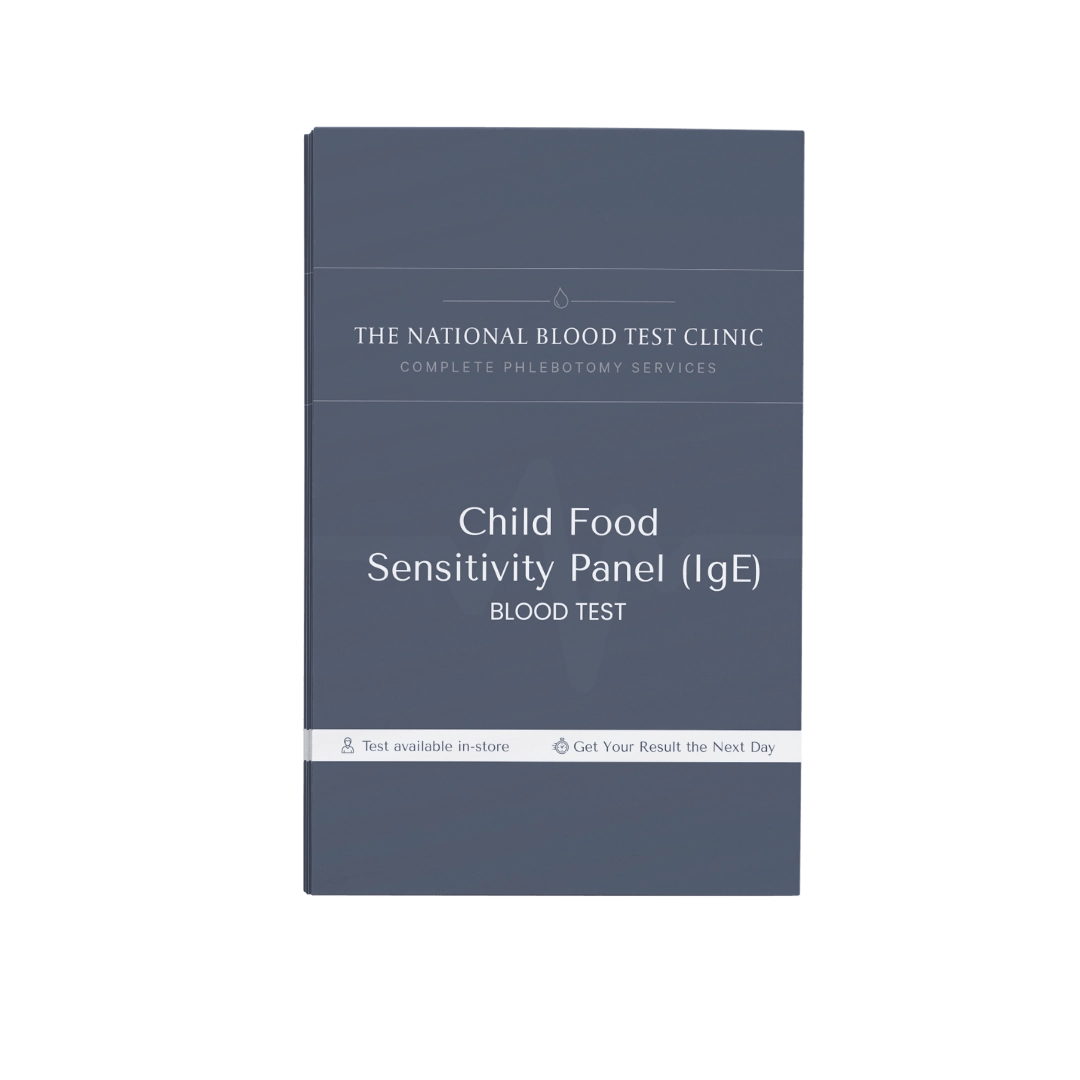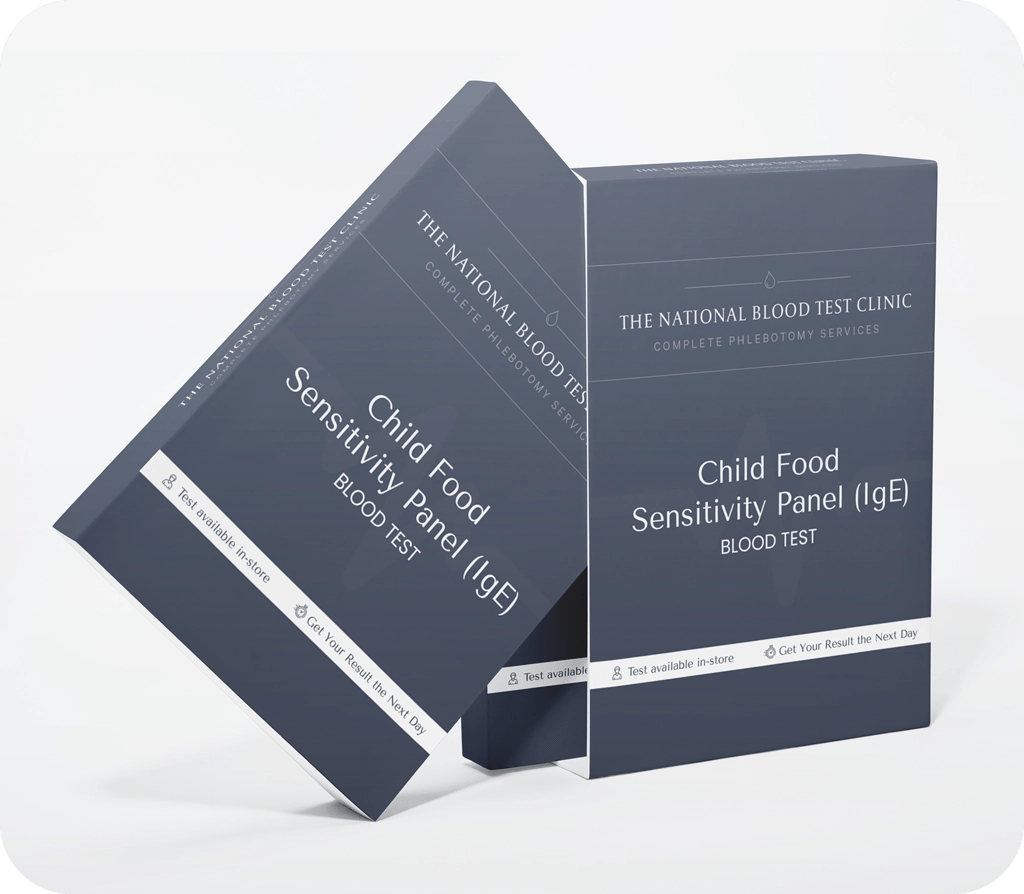My Store
Child Food Sensitivity Panel (IgE)
Child Food Sensitivity Panel (IgE)
SKU:ALL5
Unexplained rashes, digestive upset, swelling, or breathing difficulties in children may be linked to food allergies. The Child Food Allergy Panel (IgE) screens for common food allergens that often trigger reactions in childhood, helping parents and healthcare professionals identify hidden dietary risks and take early steps to protect health.
Why Child Food Sensitivity Panel (IgE) Matters?
Food allergies in children can range from mild discomfort to severe, potentially life-threatening reactions. Identifying the specific foods that trigger immune responses enables parents and clinicians to implement safe dietary choices and prevention strategies. Early detection not only reduces risk but also supports a healthier, more confident approach to nutrition.
What Gets Assessed?
- Cow's milk
- Egg white
- Wheat
- Fish (cod)
- Hazelnut
- Peanut
- Soybean
- Mustard
- Kiwi
- Beef
- Shrimp
- Sesame
- seed
Turnaround Time
- 7 Days
100 in stock
Visit a partner clinic (+£50)
Once you've ordered your test, look out for an email from our phlebotomy partners containing information and a link to book your appointment. We'll send you everything the clinic will need to complete the sample and post it back to our labs.
Organise a nurse yourself
If none of the above options work for you, you can arrange your own medical professional to collect your sample. There is no additional charge for this. Once you've ordered your test, we'll send you everything you and your chosen medical professional will need to collect a sample and post it back to our labs.
Couldn't load pickup availability
Enter Your Details
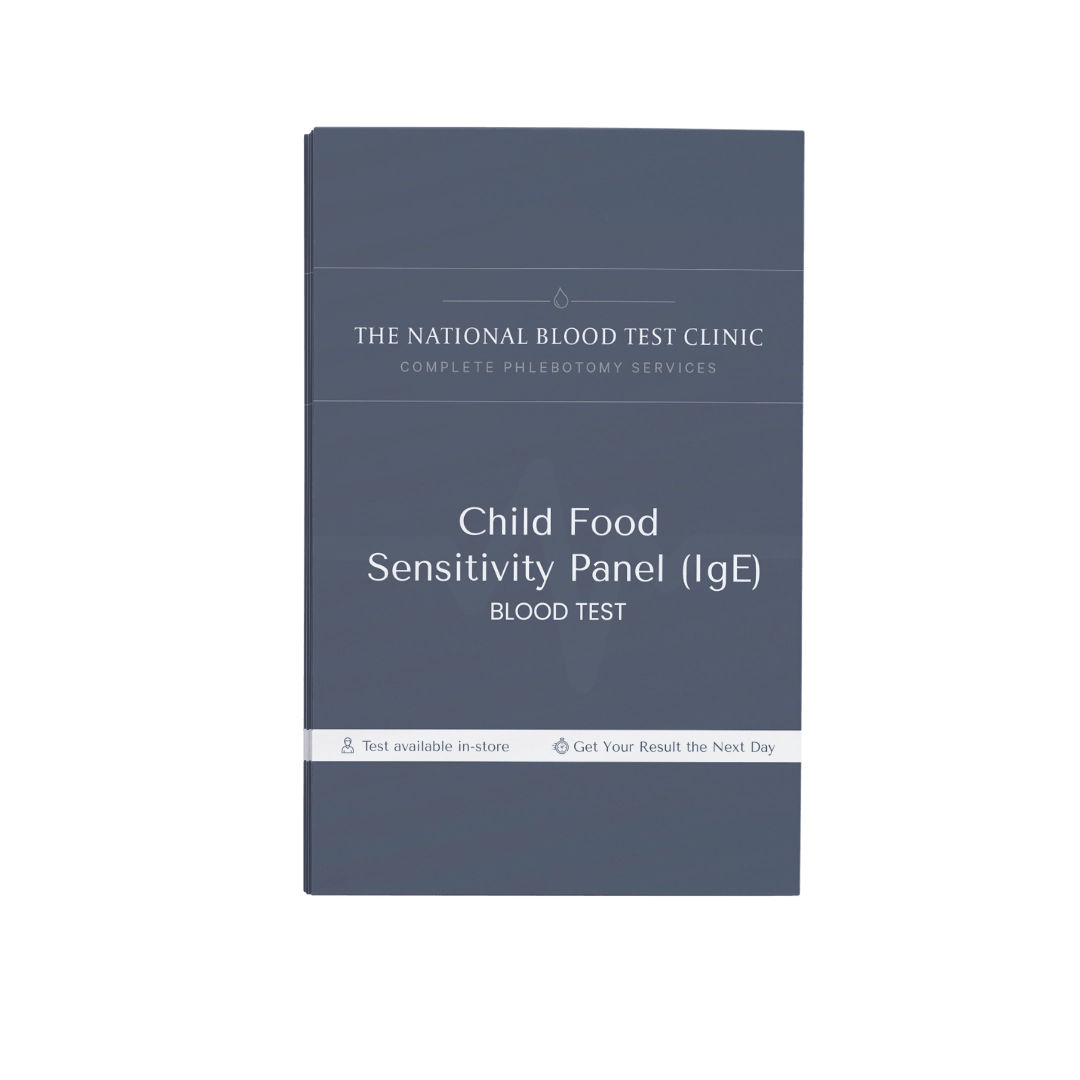
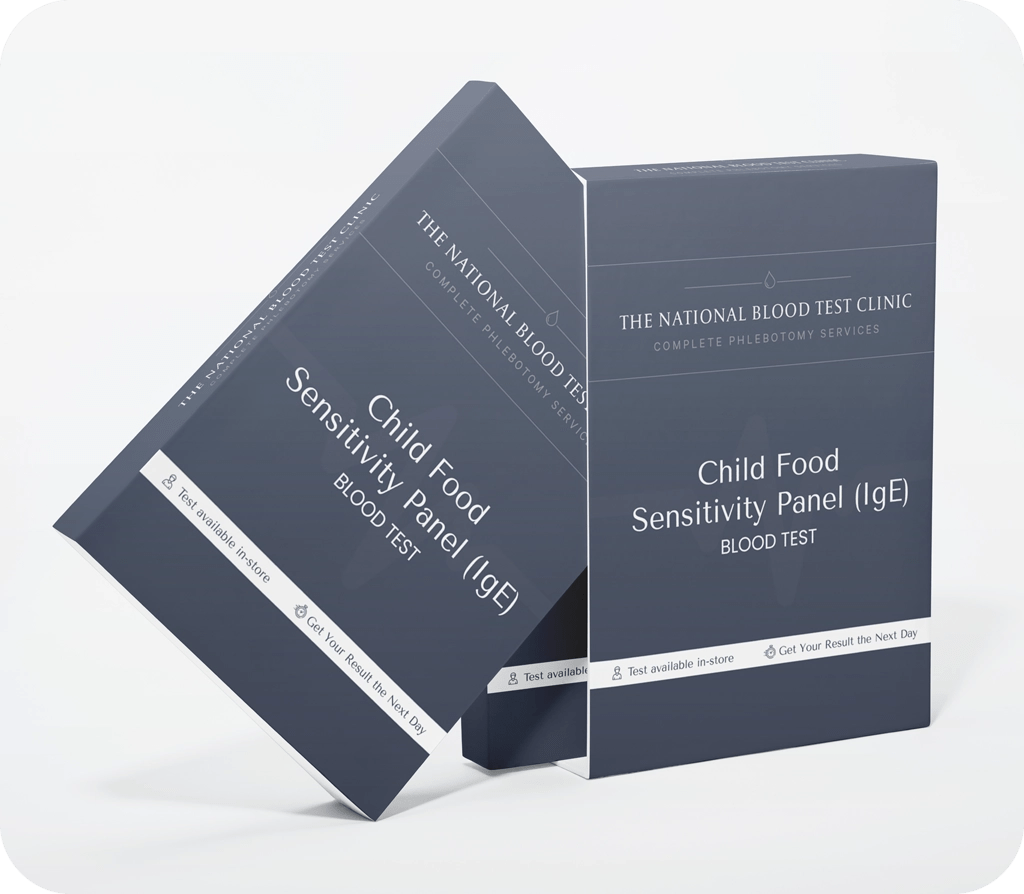
Visit a partner clinic (+£50)
Once you've ordered your test, look out for an email from our phlebotomy partners containing information and a link to book your appointment. We'll send you everything the clinic will need to complete the sample and post it back to our labs.
Organise a Nurse Yourself
If none of the above options work for you, you can arrange your own medical professional to collect your sample. There is no additional charge for this. Once you've ordered your test, we'll send you everything you and your chosen medical professional will need to collect a sample and post it back to our labs.
How Our Test Works
-

Place Your Order
Place your order online and receive a test kit delivered to your home. You’ll need to bring this kit with you to your scheduled appointment at one of our partner blood collection clinics.
-

Attend Your Appointment
At your chosen clinic, a trained nurse or phlebotomist will collect your blood sample using the kit you bring. If a sample collection courier is not available at the site, you’ll be asked to take the sealed sample with you and post it using the prepaid packaging provided.
-
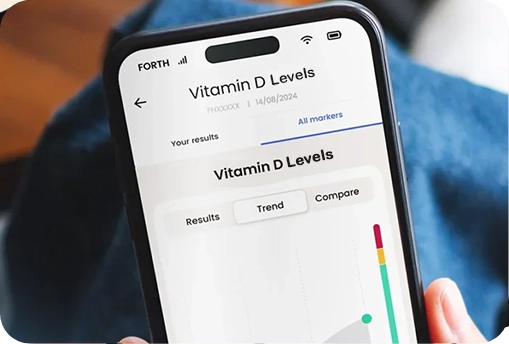
Receive Your Results
Once your results are ready, you’ll receive an email notification to log in and view them securely via your private portal. Please note: venous blood test results are not automatically reviewed by a doctor. We recommend booking a consultation with a qualified clinician to help you interpret and understand your results fully.
FAQs
Who should consider this test?
This test is recommended for children who experience persistent digestive issues, skin rashes, chronic hives, or suspected food allergies such as reactions to milk, eggs, nuts, or wheat. It helps parents and healthcare providers identify possible IgE-mediated allergic responses.
How is the Child Food Allergy Panel carried out?
The test is performed through a simple blood sample, which is analysed in the laboratory to measure IgE antibodies to common food allergens that often affect children.
Does this test cover environmental allergies?
No, this panel specifically measures IgE responses to food allergens only. For suspected environmental triggers like pollen, dust mites, or pet dander, a Child Respiratory Allergy Panel (IgE) may be more suitable.
How are results reported?
The results show the level of IgE antibody response to individual food allergens, indicating whether a child has mild, moderate, or strong allergic sensitisation. This helps in planning diet adjustments and medical care.
What should parents do if their child tests positive for food allergies?
If the panel shows positive results, parents should consult a paediatrician or allergy specialist to discuss avoidance strategies, dietary planning, and possible treatments such as antihistamines or immunotherapy for long-term management.
Subscribe to our emails
Be the first to know about new collections and exclusive offers.

